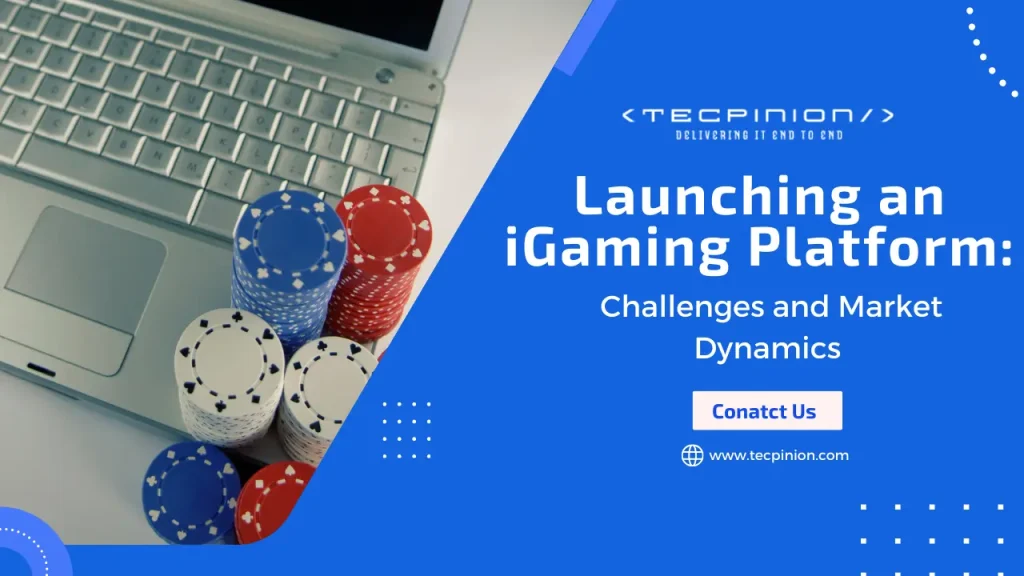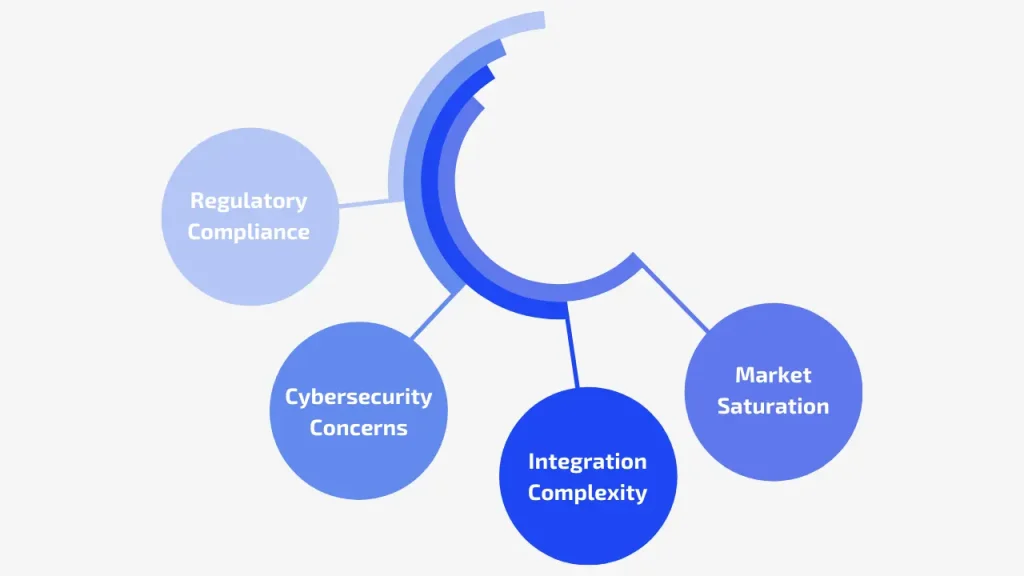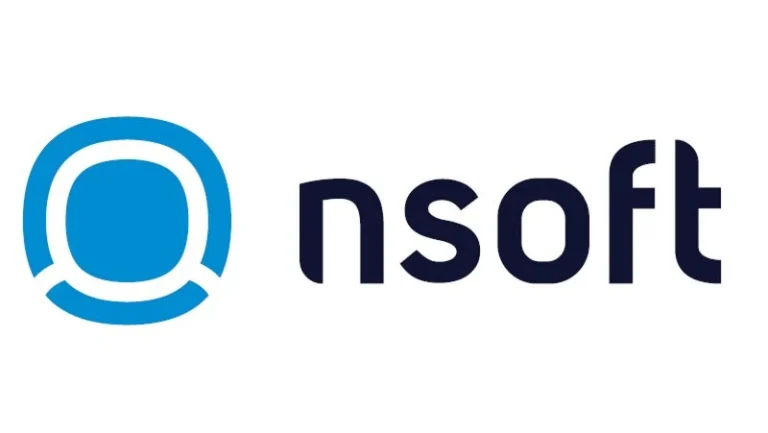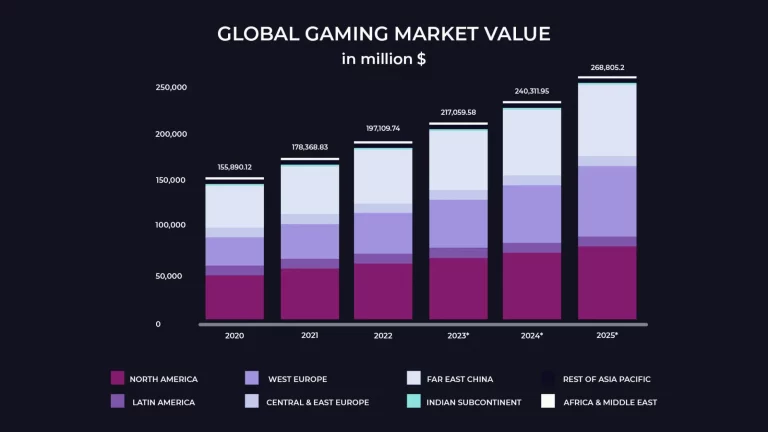Launching iGaming Platform in 2025: Addressing Challenges and Embracing Market Dynamics

In the ever-changing face of the iGaming industry, 2024 is a watershed moment for organisations trying to get into the lucrative field. The implementation of a Business-to-Business (B2B) iGaming platform is a strategic step that necessitates a thorough awareness of the problems as well as a quick response to market dynamics.
Table of Contents
- Introduction
- The iGaming Landscape: A Thriving Industry
- Importance of the iGaming Platform
- Key Considerations in Launching an iGaming Platform in 2025
- Current market stats
- Addressing Challenges in iGaming Industry
- Embracing Market Dynamics via B2B Strategies
- Strategic Planning for Launch PAM
- Payment Processing & Crypto Integration
- Top 5 Back Office Platform Providers
- Conclusion: Understanding the Future of iGaming Platform
- Tecpinion: Your true iGaming Platform Providers
- FAQ
In the ever-changing face of the iGaming industry, 2024 is a watershed moment for organisations trying to get into the lucrative field. The implementation of a Business-to-Business (B2B) iGaming platform is a strategic step that necessitates a thorough awareness of the problems as well as a quick response to market dynamics.
The iGaming Landscape: A Thriving Industry
The iGaming sector has experienced exceptional development in recent years, thanks to technical breakthroughs, greater internet access, and a growing worldwide interest in online entertainment. The market is expected to skyrocket in 2024, with increased income and user engagement. This creates an excellent opportunity for businesses to capitalise on the growing demand for creative gaming experiences.
Importance of the iGaming Platform
Driven by fast market expansion, digital transformation, and a global interest explosion, the iGaming sector has grown to be a significant actor in the global digital economy. The sector keeps growing as more nations legalize and control online gambling, drawing both new participants and investment. Technological advancements such as mobile gaming, live casinos, and blockchain integration have revolutionized the user experience, making online gaming more immersive and accessible than ever before. Furthermore, the worldwide move toward digital entertainment has positioned iGaming as a major factor in the future of online leisure, so generating great chances for innovation, employment, and economic growth.
Key Considerations in Launching an iGaming Platform in 2025
-
Strategic Approach in 2025 iGaming Platform
Establishing a successful iGaming platform in 2025 calls for a very strategic strategy that fits the always changing market trends, changing legal environment, and new technology innovations. Long-term success depends on one's keeping ahead of these developments.
-
Compliance Considerations
Ensuring that the platform entirely meets the legal and regulatory criteria of every target country is among the most important factors. This entails getting the required licenses, following sensible gaming rules, and using rigorous anti-money laundering (AML) systems. Ignoring these rules could expose major financial and reputation hazards.
-
Technology Stack
Platform success depends critically on the correct technological stack. Built with scalability in mind, the platform has to be able to manage rising user activity and traffic across a variety of devices—desktop, mobile, etc. Strong security policies are also necessary to safeguard user transactions and data. Giving an ideal user experience top priority will improve player involvement and retention, so it is a necessary part of the technological plan.
-
Payment Interfaces
First concern is a flawless and quick payment mechanism. Operators have to make sure the platform supports new digital choices including several cryptocurrencies as well as conventional payment methods (e.g., credit or debit cards, bank transactions). Providing a variety of payment options enables players to be more convenient and speeds up hassle-free transactions, so catering to a worldwide audience.
-
Market Differentiation
Differentiation is vital in a cutthroat iGaming business. Providing a wide spectrum of games with creative live dealer choices, table games, and well-liked slots will draw gamers. Customized elements—such as personalized player awards, original gaming mechanics, and special promotions—can help to distinguish the platform from rivals. A compelling and distinct offering can help create brand loyalty and drive repeat business.
-
Marketing Strategies
Strong marketing strategies help to attract new rivals and maintain present ones in a crowded digital marketplace. More knowledge of player behaviour, preferences, and trends made possible by data-driven analytics helps one to target marketing efforts. While constantly refining marketing efforts depending on data insights will increase conversion rates, partnering with affiliates and influencers will broaden reach.
Current Market Stats
The global iGaming platform and sportsbook software market was valued at USD 9.90 billion in 2024 and is expected to reach 25.96 billion by 2033, exhibiting a CAGR of 11.2% during the forecast period.
Addressing Challenges in iGaming Industry

- Regulatory Compliance:
One of the biggest issues is navigating the complex regulations of the iGaming sector. Effective compliance procedures are essential for a B2B platform to guarantee that all services adhere to local, national, and international gaming laws. To swiftly make changes and stay on top of evolving requirements, a proactive approach is necessary.
- Cybersecurity Concerns:
Because of its vast user base, the iGaming business is a desirable target for cyberattacks. Prioritizing cybersecurity is essential for a B2B platform to safeguard private information, money transfers, and high-quality gaming experiences. It’s crucial to use state-of-the-art encryption, carry out regular security audits, and keep up with new threats.
- Integration Complexity:
A vast array of services, such as payment gateways, game providers, and customer management systems, are routinely integrated with B2B iGaming platforms. Ensuring a smooth integration of these various components is a challenging task. To guarantee fruitful collaboration with customer companies, the platform needs to offer thorough APIs, ongoing maintenance, and compatibility testing.
- Market Saturation :
It’s getting harder for new players to establish a presence in the iGaming industry as it becomes more and more competitive. A B2B platform has to differentiate itself with unique features, inventive ideas, and a deep understanding of market trends. You may stand out in a competitive market by working with up-and-coming game creators, utilizing cutting-edge technology, and providing customizable solutions.
Embracing Market Dynamics via B2B Strategies
- Technology Integration:
Technology advancements will rule the iGaming industry in 2024. A successful B2B platform has to integrate cutting-edge technologies like blockchain, virtual reality (VR), and artificial intelligence (AI) to enhance gaming experiences. It stays at the forefront of innovation via working with tech partners and making continuous improvements to the platform.
- Global Expansion:
Geographical limitations do not exist in the iGaming business. A progressive B2B platform ought to consider opportunities for global expansion. This entails understanding local preferences, Integrating new payment systems and gaming content for new geographies, customizing services for various markets, and navigating the nuances of international regulations. Having a global presence makes the platform more competitive and gives it access to a wider customer base.
- Data-Driven Decision-Making:
Data is vital to the iGaming industry. Data analytics must be used by B2B platforms to gain an understanding of user behaviour, preferences, and market trends. By using this data to inform decision-making, the platform will be able to modify its services, enhance user experiences, and stay ahead of market trends. 4. Collaborative Ecosystem: Creating cooperative ecosystems is critical to the success of any B2B iGaming platform. This entails forming strategic partnerships with payment processors, regulatory bodies, and game developers. Building a network of advantageous alliances improves the platform’s reputation in the industry and enables further growth.
Strategic Planning for Launch PAM
Launching a Player Account Management (PAM) platform in the competitive gaming environment depends on good strategic planning. Comprehensive market research and positioning—that is, knowledge of player behavior, regional preferences, competitor offers, and present gaming technological trends—first stage. This information guides important decisions on features, user interface, and compliance standards and helps define a distinct value proposition.
- Market Research & Requirement Analysis
-
Research the Market Needs:
Examine in-depth the iGaming market's present trends, technologies, and user expectations. Know the legal needs for the countries you intend to target. Examine rivals to find holes in their PAM systems and prospects.
-
Define Core Requirements:
List of must-have characteristics include responsible gaming tools, fraud protection, payment gateway integration, and multi-currency capability. List the main performance indicators for system uptime, data security, and player involvement. Make that the system can manage various device interfaces— desktop, mobile, scalability, and heavy traffic loads.
- Regulatory & Legal Compliance
-
Identify Jurisdictional Requirements:
Research and ensure your PAM system adheres to the legal requirements in all targeted countries (i.e., licensing, data protection, anti-money laundering (AML), and responsible gaming rules).
-
Integrate Responsible Gambling Measures and AML and KYC Compliance:
Implement mechanisms for self-exclusion, spending limits, and responsible gaming alerts. Ensure the system's built-in Know Your Customer (KYC) feature checks gamers' identities. Create strong AML monitoring systems to guarantee compliance and follow dubious behavior.
- Platform Design & Technology Stack Selection
-
Choose the Technology Stack:
Choose from the programming languages, frameworks, and tools ( Node.js, React, etc.) those that fit scalability, security, and performance. Choose a cloud supplier, such as AWS or Google Cloud, for storage and hosting needs.
-
Design a Scalable Architecture and Security Infrastructure:
Create a modular architecture that lets you incorporate features, upgrade going forward, and link with outside services. Emphasise building a flexible backend to handle promotions, bonuses, and loyalty programs. Give end-to- end encryption—SSL/TLS—top priority for all data storage and transactions.
- User Experience & Interface Design
-
Develop User-Centric Interface:
Across desktop, tablet, and mobile platforms, provide a simple, flawless user experience. Make sure registration, log-in, and account management tools are quick and straightforward if you want users to participate more.
-
Customization & Personalization:
Give customers options on configurable dashboards so they may manage their accounts and preferences. Let players conveniently manage payment methods, track betting history, and create personal restrictions.
- Integration with Payment Solutions
-
Payment Gateway Integration:
Combining different payment channels will give digital options (e-wallets, cryptocurrencies) and traditional payment methods (credit cards, bank transfers). Verify for players a flawless and fast deposit and withdrawal system.
-
Ensure Cross-Border Payment Capabilities and Fraud Prevention & Security
To serve worldwide players, the PAM system should accept multi-currency and multilingual options. Among other fraud detection techniques, apply device fingerprinting, IP geolocation tracking, and transaction monitoring.

- Backend Development & Data Management
-
Player Data Management:
Store player profiles, transaction history, preferences, and activity logs in one centralised, safe database. To guard player information, make sure data is encrypted both in transit and at rest.
-
Integrate with iGaming Games:
Make that the PAM system easily connects with APIs of game providers—slots, table games, live dealers, etc. Turn on PAM system administration of game bonuses, prizes, and player credits.
- Testing & Quality Assurance
-
Functional Testing:
Test every PAM system module completely to guarantee correct operation. Check user registrations, test payment gates, player data updates, and account withdrawals.
-
Load Testing and Security Testing
Simulate heavy traffic to ensure the platform can handle large numbers of concurrent users without performance degradation. Run vulnerability analyses, penetration tests, and other security checks to spot and reduce possible hazards.
- Launch Preparation
-
Staff Training & Support Setup:
Teach consumer support teams how to help consumers with KYC procedures, account management problems, and other PAM-related enquiries. Provide users with a thorough FAQ and knowledge base.
-
Marketing & Promotion Planning and Staging Environment Setup
Develop marketing campaigns highlighting the new platform's features, security, and user benefits. Plan promotions, loyalty programs, and bonuses to attract early adopters and retain players. Test system stability, security, and performance under real-world conditions in a staging environment last time.
- Go Live & Post-Launch Monitoring
-
Launch the Platform:
Make the PAM system live for users and begin onboarding players. Ensure the system is fully operational and stable after launch.
-
Monitor System Performance and Collect Feedback & Iterate
Track server uptime, transaction processing, and user interactions constantly to guarantee seamless performance. Address any technical issues, bugs, or security vulnerabilities that arise post-launch. Gather user feedback on system usability, performance, and features.
- Ongoing Maintenance & Updates
-
Continuous Compliance Updates:
Regularly review and update the system to comply with evolving regulations in target jurisdictions. Continually update the PAM system, introducing new features and game integrations based on user needs and industry trends.
Would you like to explore more about iGaming Platform?
Payment Processing & Crypto Integration
User happiness and confidence in the iGaming sector depend on flawless and safe payment handling. Fast deposits, seamless withdrawals, and several payment choices catered to individual tastes are expected from players. By 2025, the norm will be combining creative ideas like cryptocurrency with conventional approaches such as credit cards, e-wallets, and bank transfers. Integration of cryptocurrencies improves transaction speed, reduces fees, and attracts a growing number of tech-savvy consumers who respect privacy and distributed networks. Supporting blockchain-based payments can also create less restricted banking-based industries, opening new possibilities. Operators must provide strong security systems, fraud avoidance mechanisms, and financial rule compliance throughout all supported currencies. Nowadays, a flexible multi-currency payment system plays a major role in a competitive scene.
Top 5 Back Office Platform Providers
As of 2025, here are five leading iGaming platform providers renowned for their robust back-office solutions, including Player Account Management (PAM) systems:
1. Tecpinion

Tecpinion is recognized among the top back office platform providers in 2025, offering powerful, customizable solutions for iGaming operators. Their platform includes robust Player Account Management (PAM), CRM tools, real-time reporting, multi-brand support, and seamless payment integration. Focusing on scalability, security, and innovation, they are a preferred choice for both new businesses and existing ones.
2. EveryMatrix
A Malta-based B2B provider offering modular platforms like CasinoEngine, OddsMatrix, and GamMatrix. Their PAM system supports compliance, fraud prevention, and player analytics, serving clients such as BetMGM and Tipico. Trusted by top-tier operators such as BetMGM and Tipico, the company empowers its partners with scalable, secure, and highly customizable technology to drive operational efficiency and player engagement.
3. NetEnt

A Cyprus-based technology company specializing in iGaming solutions. They offer hyper-turnkey and white-label platforms with integrated PAM systems, focusing on innovation and customization. Their dynamic solutions—which combine technical expertise with forward-looking design—drive engagement, retention, and long-term growth.
4. Pragmatic Solutions

Known for their Pragmatic Solutions certified PAM platform, they provide comprehensive back-office tools including analytics, payment solutions, and product management, catering to both startups and established operators. Pragmatic Solutions empowers its partners with the flexibility and autonomy to innovate and grow in a highly regulated and competitive market.
5. NSoft

An iGaming software provider with over a decade of experience, offering custom PAM systems with features like 360-degree player views, automation, and data-driven insights, serving clients across 50+ countries. Serving a varied portfolio of operators with customisable integrations, multilingual support, and ongoing innovation to satisfy the changing needs of the worldwide iGaming scene, its global reach spans 50+ countries.
Conclusion: Understanding the Future of iGaming Platform
The development of an iGaming platform in 2024 presents both opportunities and challenges in the quick-paced world of iGaming. Overcoming regulatory obstacles, bolstering cybersecurity defences, streamlining integrations, and avoiding market saturation are all necessary for success. Using data insights, expanding globally, fostering cooperative ecosystems, and embracing technological advancements are all essential strategies for navigating the B2B iGaming landscape in the future.
Organizations that can effectively navigate these challenges and adapt to changing market conditions will not only endure but thrive in the vibrant and cutthroat iGaming landscape in 2024 and beyond.
Tecpinion: A Game Changer Company for your iGaming Platform
A major force in the iGaming industry, Tecpinion is transforming the sector with its cutting-edge technologies and creative solutions. The growing need for customized solutions has propelled Tecpinion to the forefront of the market in the development of iGaming platforms, sports betting software, casino software, and fantasy sports betting software. Because of Tecpinion’s dedication to innovation, its clients have access to cutting-edge technology, seamless integration, and a wide range of services that address every aspect of the iGaming sector. Tecpinion is a prominent company that focuses on providing outstanding user experiences while keeping an eye on the quickly changing gaming industry. It also forecasts future advancements. It accomplishes this by utilizing state-of-the-art technology to produce smooth and entertaining gaming environments. Tecpinion helps its customers stay one step ahead of their competitors by putting dependability, security, and inventiveness first. From cutting-edge game concepts to robust backend technology, Tecpinion’s all-encompassing approach to iGaming is redefining the industry. This makes it a fantastic choice for anybody looking for a game-changing and competitive advantage in the online gaming industry.
FAQ
- What licenses are required to launch an iGaming platform?
Licensing depends on your target markets. Popular jurisdictions include Malta (MGA), Curaçao, the UK (UKGC), and Ontario (AGCO). Each has its requirements around compliance, responsible gaming, and financial transparency. - What are the must-have features for a 2025 ready-made iGaming platform?
Key features include a robust PAM system, mobile-first UX, diverse payment options (including crypto), AI-driven personalization, strong security protocols, and compliance tools. - How important is crypto integration?
Very. Crypto is increasingly popular for its speed, privacy, and low fees. Supporting crypto can attract a younger, global audience and unlock access to new markets. - What are the biggest compliance risks?
Not staying up to date with KYC/AML regulations, responsible gambling obligations, and jurisdiction-specific laws. Partnering with legal experts is strongly advised. - How much initial capital is needed?
It varies widely. White-label platforms may require $50k–$150k, while custom solutions can exceed $500k. Budget for licensing, technology, marketing, and legal costs. - What games should I offer at launch?
Start with a strong mix: slots, table games, live casino, and sportsbook (if applicable). Partnering with top-tier game providers like Evolution, Pragmatic Play, or NetEnt ensures quality content.
Want to know more
about iGaming Platform
Read out the Related Blogs
Recent Post
-
How Can Sweepstakes Platforms Turn Geolocation Compliance into an Opportunity?
-
Why the Right iGaming Platform Provider Matters for Your Casino’s Success
-
How to Start a Social Casino in 2026: 10 Essential Steps
-
Online Casino Operator's Guide: How to Promote Responsible Gambling
-
How Can Gamification Keep You Ahead in the iGaming Industry in 2026?



